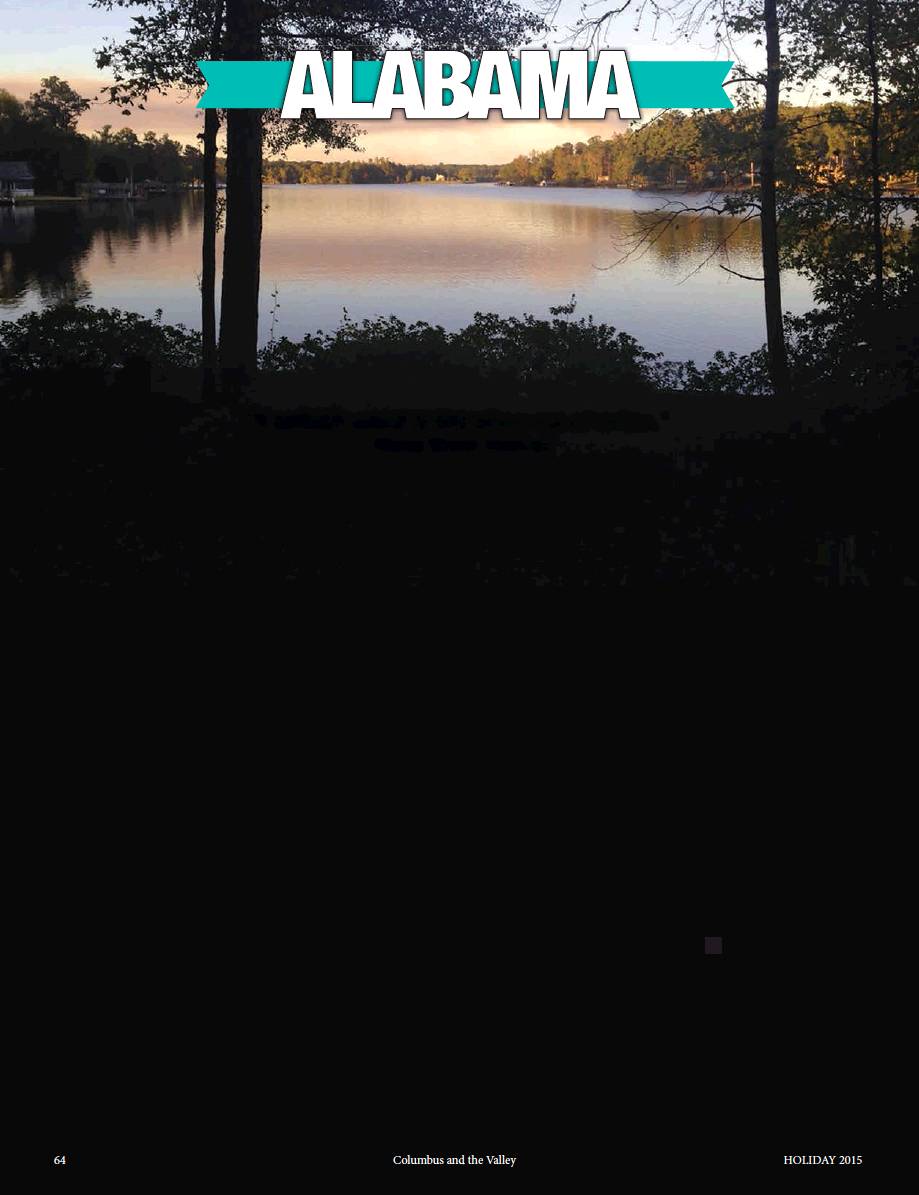THE ALARAMA SIDE
BY JUDY SHEPPARD
IT’S NICE THAT WE READERS IN THE VALLEY get along better now than we did a few years ago. Remember those letters to the editor likening people with Kindles to “the barbarians at the gates of the burning libraries of Mesopotamia”?
And Kindle readers texting back that paper readers were the “mass slaughterers of trees” and “the perpetuators of the ancient class system in which only the wealthy could purchase the accumulated knowledge of the ages”?
No? Well, maybe we didn’t argue quite that much. Anyway, the point is we’re reading. Both my Kindle and my battered bedside copy of Walden always end with the same words: “The sun is but a morning star” You, in fact, are reading this either from a neat bundle of glossy pages stapled together at one side or on a slim, smooth screen. Maybe you’re reading parts of this publication on both, at different times.
There’s a third kind of book that I feel a special pull to, and not just for the words or plates or pictures inside, beautiful as they may be, and certainly not for any monetary value. They are the used books I have bought because others have left them behind, and for the puzzles they left behind in them. A book owned by someone in New Jersey has somehow made it to Georgia. A receipt for a wheelchair flutters out. Sometimes, the book falls open to a photograph left in its pages, two shy young women in ‘40s-style bathing suits on a beach in black and white.
Sometimes, the books are too sad to buy. How did a book so lovingly inscribed “Dad: I will never forget how you let me come home when I needed to” ever end up thrown away? I would just as soon lose an eye as give up the copy of Goodnight Moon that I read to my daughter a thousand times, yet in one I saw a grandmother had hidden a sweet note along the circles of the rug in the room. The point of the book is to let the child find the mouse on each page. Did the child ever even see those words? And, if so, how could she ever have let that book go?
I don’t buy many old books, but I buy them with respect. Even if the last owner didn’t care about the book, someone cared enough to write it. Maybe it was the greatest achievement of his life. Some books are like earnest little teachers trying to get through to a bored class, like my treasured little green volume, published in 1911, with its title in gold: “Weeds, and How To Eradicate Them, By Professor Shaw” I wonder about the person whose life is so trouble-free that he could toss away a book published by the Sacred Heart Church and called “The Triumph of Life: Poems of Consolation for the English-Speaking World” And I’ve spent a lot of time pondering a small textbook I found called “Life in Alabama” published by the Dixie Book Company in Montgomery. It was published in 1927, only 88 years ago, yet it is as rich in news of my state’s progress as an archaeological dig. Back then, white elementary children read a chapter devoted to “Our President, Jefferson Davis” were assigned roles from a pre-“Gone with the Wind” script called “A Plantation Play” and were told that the Creek Indians were in equal parts savages and heroes. That book tells me how awful it is that white Southern adults once thought that white Southern children would be proud of that version of history. That how far it is that we have come so quickly. How far it is we have to go.
It’s one reason to think about pausing at a shelf of old books nobody else will glance at. Most are on their way out of this world. Nobody will be converting them into an eternal database in the “cloud”; they’ll disappear into a landfill or a trash pile. Maybe the person who owned the book, made the book, wrote the book left something in it behind, even if he never had an inkling. C
"A written word is the choicest of relics."
– Henry David Thoreau
Judy Sheppard teaches journalism at Auburn University and spent seven years as a reporter, chiefly in the Auburn bureau, for the Columbus Ledger-Enquirer. She has lived in the Valley for 33 years and is working on a book about Alabama newspapers during the civil rights era.
